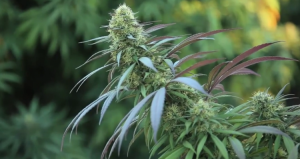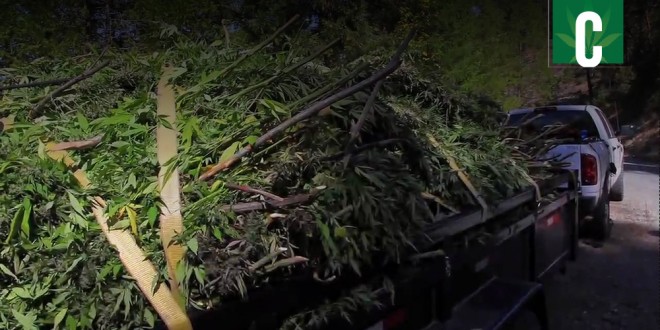Another day, another story that makes it clear why marijuana should be legal.
 Firefighters in California’s famed Emerald Triangle say they continue to see signs of violence in the region’s illicit marijuana industry, despite a high-profile case from 2010 they hoped would bring light to the issue. That case landed one grower a life sentence for murder, but cops say it’s had little effect on problems between cannabis farmers and migrant workers.
Firefighters in California’s famed Emerald Triangle say they continue to see signs of violence in the region’s illicit marijuana industry, despite a high-profile case from 2010 they hoped would bring light to the issue. That case landed one grower a life sentence for murder, but cops say it’s had little effect on problems between cannabis farmers and migrant workers.
Last year, workers from a nearby farm showed up at Cal Fire’s Kneeland Helitack Base in Humboldt County, asking to use the phone. Battalion Chief Kurt Dernedde knew something was amiss.
“To not have some sort of problem like (running) out of gas or anything, to just walk up to the base doesn’t normally happen,” said Cal Fire Battalion Chief Kurt Dernedde. But the men wouldn’t say why they wanted to make a call, Dernedde said.
One man fled and survived
One day later, one of the men returned, bleeding and afraid. He said his name was Fernando Paz, he was a migrant farm worker from Guatemala, and that his boss had shot him and a co-worker. Paz survived; the other man, Roberto Madrid, did not.
“He was already in rough shape,” Dernedde said of Paz.
The shooting apparently stemmed from a mix of greed and poor planning. The farm’s owner, Mikal Wilde, had hired the men to help tend an 800-acre marijuana plot in rural Humboldt County. The arrangement worked for a time, until Wilde ran out of money.
“This was about as cold-blooded as it gets,” said Assistant U.S. Attorney William Frentzen. “Things were going well. They were living in a travel trailer on one of the sites. Mikal Wilde was bringing them food, they knew it was for a short period of time, about three months, and they did their work, woke up early, watered the plants. Everything seemed to be going fine.”
Farm owner ran out of money
 But Wilde’s funding eventually ran dry, and he could no longer afford the fuel needed to transport water for irrigation.
But Wilde’s funding eventually ran dry, and he could no longer afford the fuel needed to transport water for irrigation.
“He didn’t have diesel to fuel his cars and at that point he took the keys away and wanted them to water the plants by hand,” Hopkins said.
But the workers refused, as the job would require carrying water to more than 1,500 plants spread over a wide area. They quit their jobs, but Wilde retaliated, taking away their phones and guns. He then waited for them outside their trailer and shot them.
Paz survived and ran, but Wilde chased Madrid down a hillside and shot him again.
“Based on the forensics, Mr. Wilde came up behind him and shot him in the back of the head, execution style,” Hopkins said.
The murder ultimately came down to money
“The pressure of trying to get the grow to the point of making money, hanging on to the property and all of these investments, it looks like all of that culminated in him doing the one thing he thought he could or should do was take out the workers,” the prosecutor said.
Wilde’s lawyer, Tony Serra, acknowledged that Wilde “ran out of money,” but says that isn’t the whole story. The grow site had recently been robbed, workers demanded guns, and they were soon trying to take control of the operation, Serra said.
“Pretty soon they were parading around with guns and they, in essence, took charge of the whole thing,” Serra said. “Just using layman’s terms, he snapped.”
Wilde felt threatened and “believed strongly they were capable of violence,” Serra said. “He believed strongly they had a gun. He believed strongly, and I share his belief, that he saw a gun.”
Even so, Wilde was convicted in a trial that included forensic evidence proving the workers weren’t armed when they were shot. Wilde was sentenced to life behind bars.
Now, police say, Wilde’s 800-acre plot has changed hands but still produces black market marijuana. Frentzen said he hopes spreading word of the murder could discourage migrant marijuana workers. That apparently isn’t happening, but the story serves as a potent reminder of the negative effects of prohibition.
 California Marijuana Market Breaking "Marijuana News" from CA
California Marijuana Market Breaking "Marijuana News" from CA


